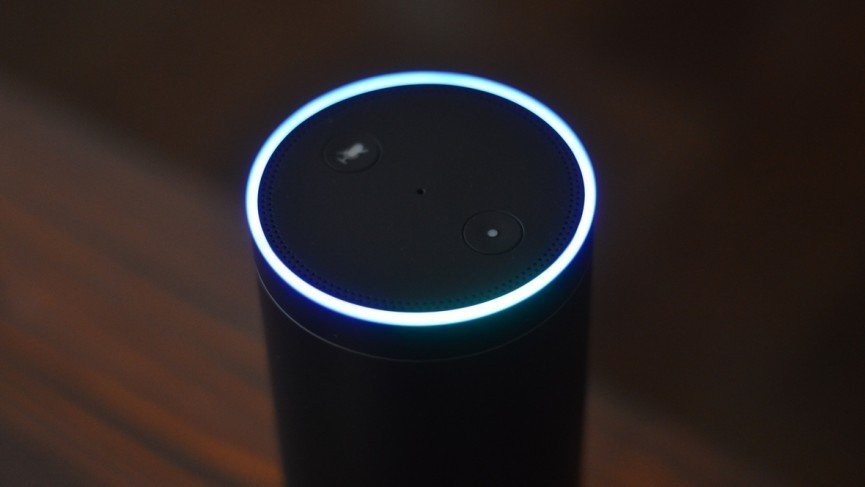I’m pretty obsessed with both the word and the idea of kompromat right now. It is, of course, the Russian art of collecting compromising material – images, audio, video – of individuals to blackmail them with at a later date. And it got me thinking about the new-ish trend of putting always-listening smart speakers in our own homes. We live in peculiar times.
Read this:A quick and dirty guide to ambient computing
Many of the commentary and explainers have focused on the overall privacy concerns of always-listening speakers which record snippets of what we’re saying in our own houses and flats.
The divide seems to be between Team Terrified and Team ‘Sorry George Orwell, I don’t give a fuck‘ with some of the distinction coming from whether you’re a millennial who has already given up control of most of your personal data.
What I’ve been thinking about, though, since getting an Amazon Echo Dot and covering the Google Home features, is this: Say I did decide that a voice-controlled smart home and access to the power of the internet via one short phrase was worth giving a big tech company an ear to all my conversations. Do I want it to be Amazon or Google? Some considerations…
What does Google want?
In other words, what are Google and Amazon’s ambitions as companies and what are their business models? If you look at the Google Home privacy policy – it has its own specific page – Google tells us in specific, and then more vague, terms what it does with the data.
It uses the data to improve its services – fine. And to protect users from malware – also fine. Then, “on surfaces where we show ads, we use data to show you ads that are relevant and useful”. This is Google’s business model. All those moonshots I love – part of Google’s ambitions – come from ad sales, targeted ads. I weirdly believe myself a little bit immune to targeted internet ads so I’m down with this. (See also, people who use ad blockers).
Then, the vague one: “and to keep our services free for everyone.” That could mean ads or just about anything really. I use Google’s services pretty much every waking minute of my day: Chrome, Search, Android, Gmail, Maps, Cardboard, YouTube, Drive. These are free Google services.
It also means Google has a hell of a lot of personal data on me, probably the most of any single company apart from Facebook (including WhatsApp which it owns). But that phrase worries me a little in terms of the business model. Google uses data from Home to keep its services free i.e to make money by other means.
What does Amazon want?

Amazon seems to me more clear cut: Jeff Bezos wants us to buy more stuff from Amazon and make it as frictionless as possible. You know, the Everything Store. That’s why you can use Alexa to order stuff from Amazon. But it’s worth pointing out you can turn this feature off.
Of course, there will be targeted ad stuff thrown into the mix with Amazon too. And it already tracks web searches. In order to get us to buy more stuff from Amazon.
I already pay for Amazon Prime each month for the privilege of one-day delivery and access to Prime Video. Including Prime Video, I’ve spent £1.98 on Amazon so far in January. £52.44 in December (Christmas). £31.46 in November. £56.95 in October (books). £13.48 in September.
So I’m not too worried.
If you have recently bought an Amazon Echo or another Alexa device (or even those crazy Dash buttons), it might be a useful exercise to calculate your total Amazon spending over the course of three or six months. If it’s not going up and up and up, I’d say you’re winning.
Which one is Buy n Large?
This is an important question and the answer is probably Amazon. If you’re not familiar with Pixar’s Buy n Large, it’s the megacorporation from Wall-E, Toy Story 3, Up etc that is partly responsible for the downfall of humanity. I don’t want to contribute to that.
The point I’m trying to make is that aside from the price, features and design of the Amazon Echo, Google Home, Triby IO and Lenovo Smart Assistant (the list goes on), privacy should be on your list of considerations. Not just whether this is something you want in your home full stop but who exactly will be listening (including third-party services) and what they will do with that data. Not just that but what will each company do with the money?
The shift to always-on, ambient computing in our homes, workplaces and cars will be a profound and powerful one. I joke around, sure, but considering that we already use the smartphones and browsers and shopping sites of a handful of big companies, this decision isn’t one we should take lightly.
For me as an individual, assuming that when a privacy policy says it won’t share my personally identifiable data with other companies it’s telling the truth, I’d rather Amazon spy on me than Google. Google is one of my absolute favourite companies but it already knows too much.
Are you more comfortable with Amazon or Google listening in on your home? Let us know in the comments.



